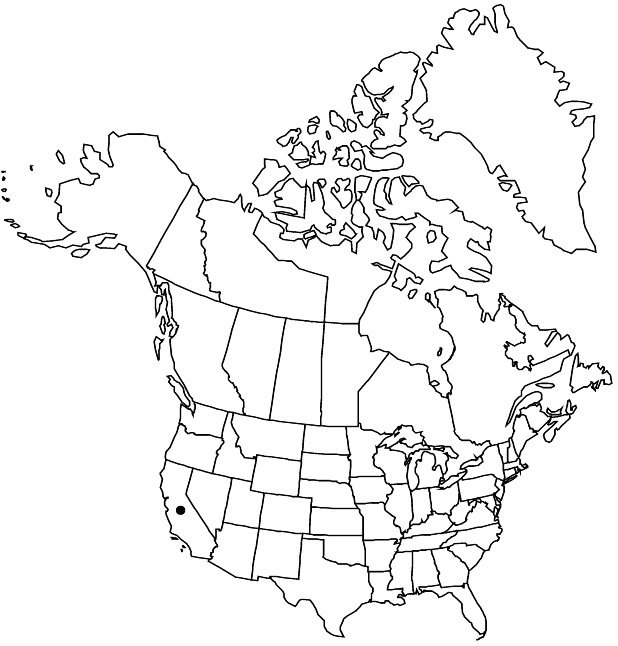Difference between revisions of "Dudleya abramsii subsp. calcicola"
Madroño 34: 347. 1987 ,.
FNA>Volume Importer |
imported>Volume Importer |
||
| (6 intermediate revisions by 2 users not shown) | |||
| Line 7: | Line 7: | ||
}} | }} | ||
|common_names=Limestone dudleya | |common_names=Limestone dudleya | ||
| − | |basionyms={{Treatment/ID/ | + | |special_status={{Treatment/ID/Special_status |
| + | |code=E | ||
| + | |label=Endemic | ||
| + | }} | ||
| + | |basionyms={{Treatment/ID/Basionym | ||
|name=Dudleya calcicola | |name=Dudleya calcicola | ||
|authority=Bartel & Shevock | |authority=Bartel & Shevock | ||
| + | |rank=species | ||
| + | |publication_title=Madroño | ||
| + | |publication_place=30: 210, fig. 1. 1983 | ||
}} | }} | ||
|synonyms= | |synonyms= | ||
| Line 26: | Line 33: | ||
|elevation=500-2000 m | |elevation=500-2000 m | ||
|distribution=Calif. | |distribution=Calif. | ||
| − | |discussion=<p>Subspecies calcicola is known from a dozen or more places in Inyo, Kern, and Tulare counties, in the southern Sierra Nevada, and appears not to be rare. It forms clumps to 1.5 dm in diameter.</p><!-- | + | |discussion=<p>Subspecies calcicola is known from a dozen or more places in Inyo, Kern, and Tulare counties, in the southern Sierra <i>Nevada</i>, and appears not to be rare. It forms clumps to 1.5 dm in diameter.</p><!-- |
| − | --><p>Although cyme branches in wild plants commonly are simple, as in most other subspecies, K. M. Nakai (1987) found that in cultivated plants they became one to two times bifurcate in subsp. calcicola but not in the other subspecies.</p> | + | --><p>Although cyme branches in wild plants commonly are simple, as in most other subspecies, K. M. Nakai (1987) found that in cultivated plants they became one to two times bifurcate in <i></i>subsp.<i> calcicola</i> but not in the other subspecies.</p> |
|tables= | |tables= | ||
|references= | |references= | ||
| Line 36: | Line 43: | ||
-->{{#Taxon: | -->{{#Taxon: | ||
name=Dudleya abramsii subsp. calcicola | name=Dudleya abramsii subsp. calcicola | ||
| − | |||
|authority=(Bartel & Shevock) K. M. Nakai | |authority=(Bartel & Shevock) K. M. Nakai | ||
|rank=subspecies | |rank=subspecies | ||
| Line 50: | Line 56: | ||
|publication title=Madroño | |publication title=Madroño | ||
|publication year= | |publication year= | ||
| − | |special status= | + | |special status=Endemic |
| − | |source xml=https:// | + | |source xml=https://bitbucket.org/aafc-mbb/fna-data-curation/src/2e0870ddd59836b60bcf96646a41e87ea5a5943a/coarse_grained_fna_xml/V8/V8_371.xml |
|genus=Dudleya | |genus=Dudleya | ||
|subgenus=Dudleya subg. Dudleya | |subgenus=Dudleya subg. Dudleya | ||
Latest revision as of 22:43, 5 November 2020
Caudices simple or 2–50-branched, 1–2 cm diam. Leaves: rosettes 1–50; blade oblong-lanceolate or tapering from base, subterete, 1–8(–10) × 0.3–1.3(–1.6) cm. Inflorescences: floral shoots 3–18(–25) × 0.1–0.5 cm; proximalmost leaf blades 4–20 mm; branches 2–4, often simple, sometimes 1–2 times bifurcate. Pedicels 1–8 mm. Flowers: calyx 3–7 × 3–7 mm; petals connate 1–3 mm, straw yellow or pale yellow, red-lineolate or not, 9–15(–18) × 2–4.5 mm, tips strongly outcurved. 2n = 34.
Phenology: Flowering late spring–early summer.
Habitat: Limestone and metamorphics in chaparral and pinyon-juniper woodland
Elevation: 500-2000 m
Discussion
Subspecies calcicola is known from a dozen or more places in Inyo, Kern, and Tulare counties, in the southern Sierra Nevada, and appears not to be rare. It forms clumps to 1.5 dm in diameter.
Although cyme branches in wild plants commonly are simple, as in most other subspecies, K. M. Nakai (1987) found that in cultivated plants they became one to two times bifurcate in subsp. calcicola but not in the other subspecies.
Selected References
None.
